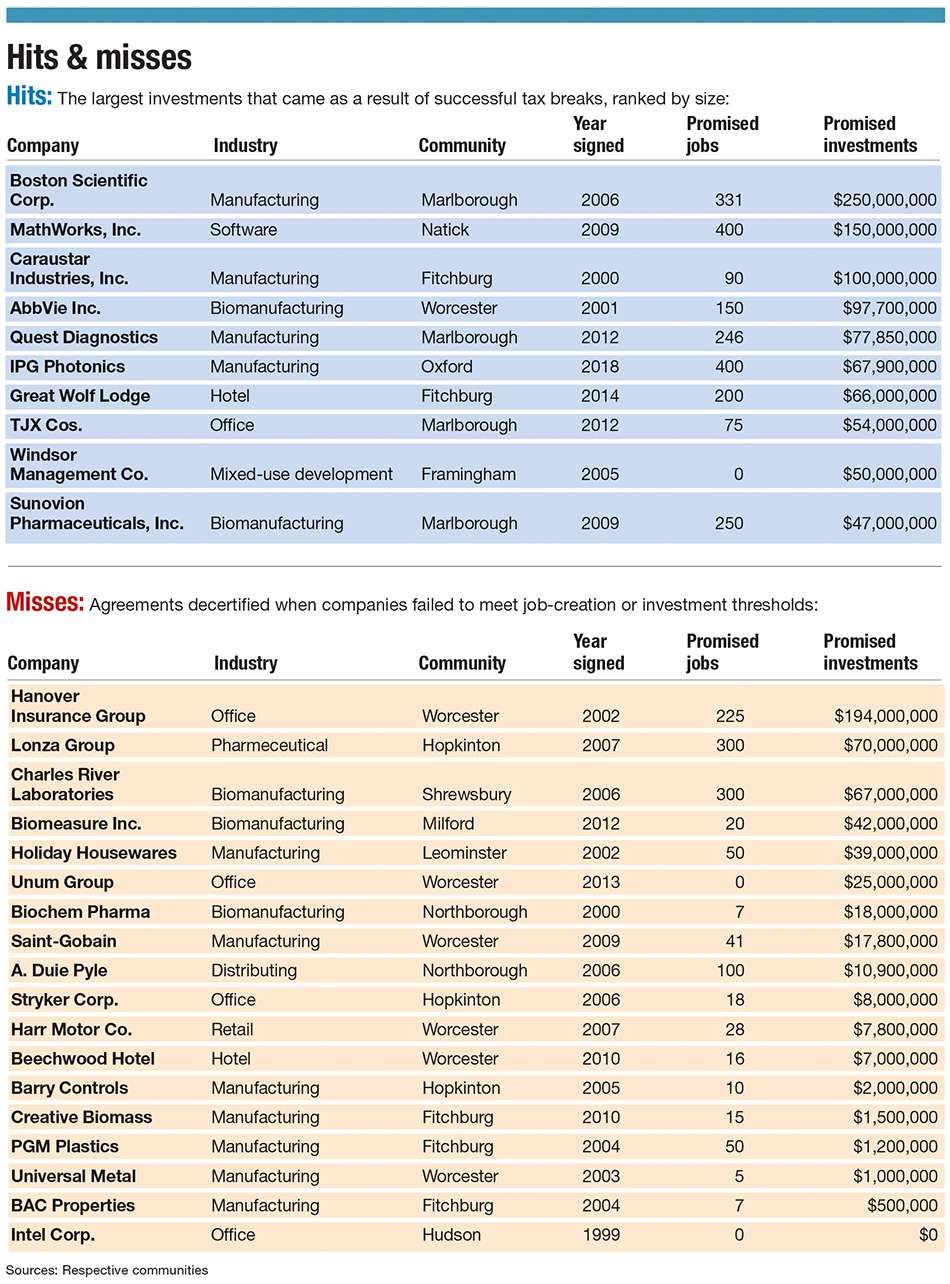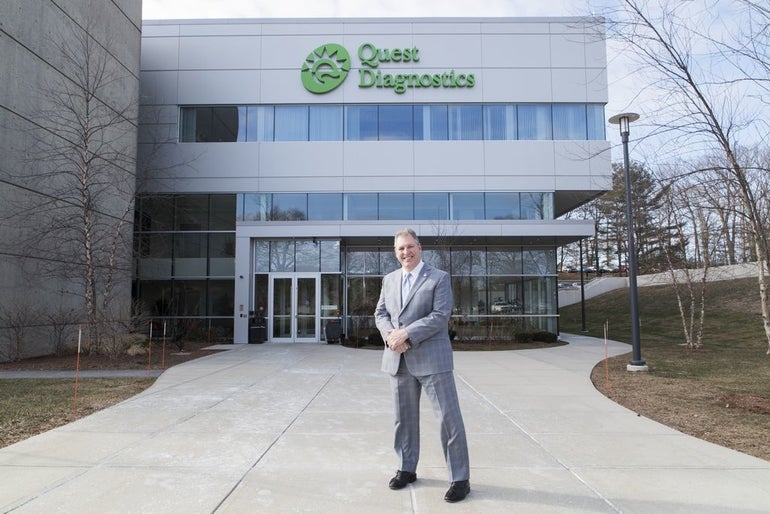
Hits & Misses: For local governments, the potential upside of tax breaks outweighs the risk
 Photo | Matt Wright
Marlborough Mayor Arthur Vigeant was proactive in getting two large empty office buildings filled, offering tax breaks to Quest Diagnostics and other large companies.
Photo | Matt Wright
Marlborough Mayor Arthur Vigeant was proactive in getting two large empty office buildings filled, offering tax breaks to Quest Diagnostics and other large companies.
In June of 2012, Milford town officials reached agreement with a research company to expand its headquarters by 60,000 square feet. The $42-million investment by Biomeasure Inc. was expected to bring 20 more jobs to Milford.
Milford's hopes soon unraveled. By the next year, Biomeasure decided instead to cancel the expansion, sell the facility and move.
Just five months after Milford signed its deal with Biomeasure, Marlborough reached a similar agreement with Quest Diagnostics, a New Jersey medical laboratory service. Quest would soon open a $78-million, 200,000-square-foot laboratory at a sprawling building left vacant by the demise of computer manufacturer Digital Equipment Corp.
The deal helped bring what the company now says is more than 2,000 lab workers, including researchers, and genetic counselors.
“Our whole objective in this thing is to make the pie get bigger,” Marlborough Mayor Arthur Vigeant said.
This hit-or-miss nature has been an unavoidable part of communities' use of business tax breaks over the last two decades, according to a Worcester Business Journal review of 148 tax breaks in 16 Central Massachusetts communities.
Of all those tax breaks, 18 – or 12 percent – were decertified. Among them:
• Holiday Housewares closed in 2006, four years after it got a tax break from Leominster for a planned $39-million expansion.
• Lonza Group, a life sciences company, closed its Hopkinton facility roughly six years after it committed to a $70-million expansion with 300 new jobs.
• Stryker Corp. eliminated its Hopkinton operations in 2011 after it sold most of its business to Olympus Biotech, which itself folded three years later.
• In Fitchburg, PGM Plastics went out of business in 2008, four years after it signed a tax break with the city.
• Also in Fitchburg, wood pellet maker Creative Biomass went out of business soon after its 2010 tax deal to hire 15 workers.
• Charles River Laboratories closed its Shrewsbury lab – temporarily, it turned out – four years after it committed to a $67-million expansion to add 300 jobs.
The ribbon-cutting effect
Even though these deals can fail, there are reasons municipal leaders often turn to them as a way to try jumpstarting new development or additional jobs, said Megan Randall, a research analyst with the Urban Institute, a Washington, D.C., economic and social policy think tank.
Randall called it the ribbon-cutting effect. Politicians eager for a photo op at a new or expanded business might chase deals not making much economic sense.
“They want to say 'I did this thing, and you can see it, here it is,'” Randall said.

In Marlborough, where none of its 16 tax break deals in the last 20 years have been decertified, Vigeant said these tax-increment financing deals have been key. Having already attracted large corporations like Quest Diagnostics, Boston Scientific and TJX Cos., Marlborough now is working on incentives to attract smaller businesses such as restaurants and mixed-use developments in order to create a more well-rounded city.
“Communities are really limited on the incentives they can do,” Vigeant said. “There's really only a few programs.”
The best use of local money
Companies receiving tax breaks are required to regularly submit updates to the state on their progress in hiring new workers or making investments. In exchange for discounts on how much they'd pay in property taxes – often for 10 or 20 years – companies typically agree to hire a certain number of workers or invest a certain amount of money.
When they don't reach those commitments, the community or the state can end the deal.
In Central Massachusetts, communities sometimes keep deals in place even when the companies don't meet job-creation or investment thresholds.
That's happened in Worcester, where Hanover Insurance Group laid off more than 1,200 workers soon after a planned $194-million expansion in 2002. The abrasives maker Saint-Gobain didn't add any of the 41 jobs it planned to fill, and the Beechwood Hotel cut workers despite making its investment target. The insurance company Unum cut jobs after agreeing on an expansion in a deal with the city.
The city administration has said it kept those deals in place because of those companies' broader contributions to the city and continued employment levels.
Tax breaks are meant to help companies when communities pass up some of the tax revenue they would have made in order to encourage new investment, said Michael Goodman, the executive director of the Public Policy Center at UMass Dartmouth and a member of the state's Economic Assistance Coordinating Council, which reviews tax breaks.
The question, Goodman said, is whether the incentive is the best use of local money to bring new revenue and growth.
“That's a judgment that local policymakers make,” he said.













0 Comments